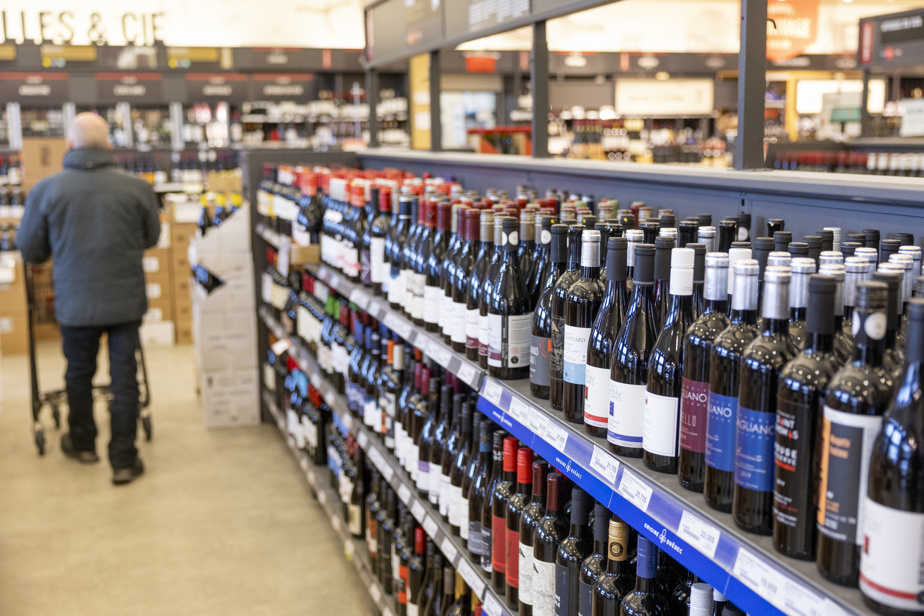While predicting strong growth in the number of bottles produced over the next few years, the president of the Conseil des vins du Québec (CVQ), Louis Denault, sees a promising future in terms of the place that wine products will occupy. from here on the shelves of the SAQ.
“I think that soon, there won’t even be any more calls for tenders because the SAQ is looking for products from Quebec,” Mr. Denault enthusiastically launched, on the sidelines of the Ciders, wines and alcohols from here convention which will take place. held in Drummondville, Thursday and Friday. If our wine passes the lab tests and the price is not exaggerated, they will take our product. »
The SAQ regularly presents its needs, particularly in terms of wine, to its business partners. For example, we are looking for European macerated (orange) wines, rosés from Provence, whites from New Zealand or reds from Quebec. Agents and producers who have drinks that match demand submit applications. The SAQ studies them, does blind tastings and warns the lucky ones. However, Quebec winegrowers believe that the process will be simplified for them.
“I think the door is much wider open right now for Quebec wines,” said Matthieu Beauchemin, owner of Domaine du Nival in Saint-Louis. If you have something that is salable and has a good price, bring it. »
Josée Dumas, director of supply management and merchandising at the SAQ, acknowledges that the government corporation is considering eliminating calls for tenders to shorten lead times, but she denies wanting to “unwind the red carpet” for Quebec winemakers. “There is no special treatment,” she said when La Presse questioned her on the sidelines of the CVQ congress. However, she points out that the demand for local products is growing. At the moment, these represent 17% of total sales – but that includes foreign beverages bottled in Quebec.
Some winegrowers choose not to place their wines on the shelves of the SAQ, for many reasons, including insufficient production volume. On the other hand, if the crown corporation allowed them to sell wines in two or three branches in their region, they would do so with enthusiasm.
This would promote regional growth, explains Liudmilia Terzi, new owner of the Beauchemin vineyard, located in Yamachiche, who would join the SAQ network if such decentralized management were possible.
This is what Louis Denault, president of the Conseil des Vins du Québec, wants.
“If I want to send my product to the SAQ, I have to go through the machine and send my products to the warehouse,” he explains. After that, I can have wines that can be picked up in Fermont and I won’t even have any in my region. »
According to Matthieu Beauchemin, of Domaine du Nival, if the SAQ supported this decentralization, the number of Quebec winegrowers represented globally on the shelves of the state-owned company would double.
Himself, who does not sell his wines at the SAQ, would adhere to it.
This would allow him to bring the cuvées from his Montérégie vineyard directly to the SAQ branches near his home where he has privileged contact with the employees who will then present his wines to their customers.
Louis Denault praises the LCBO (the Ontario Crown corporation) for allowing this kind of over-the-counter agreement.
“In a few stores, the LCBO has one-stop access with producers,” he says. Winegrowers have their wines analyzed, like all other products, but once the wine is accepted and its compliance is established, the producer does business directly with a branch.
“We’ve been telling the SAQ for 5, 6 years that this is the place to go. We need to develop that here. »
Josée Dumas, director of supply management and marketing at the SAQ, however, specifies that it is not the responsibility of the SAQ to allow these agreements, since Quebec law does not allow it.
Selling Quebec wine is a shared responsibility, says Sébastien Daoust, from the Les Bacchantes vineyard in Hemmingford, some of whose vintages have been at the SAQ for a few years.
“We all have to work together to get better at marketing,” says the entrepreneur. The SAQ can better support us in this and the winegrowers themselves must establish marketing skills. »
According to him, the process of marketing Quebec wines has been greatly simplified in recent years, because the state-owned company understands the reality of small producers.
“I think a lot of people look after Quebec winemakers at the SAQ because they’re small producers. »
It now remains to seek additional market share in this context where production will be on the rise.
“We have 1% of the market. The second 1% of the market is harder to find. »
“Now that we make good grapes, now that we make good wine, says Sébastien Daoust, how do we market it in a structured, intelligent way as an industry in general? This is the next big challenge. »
